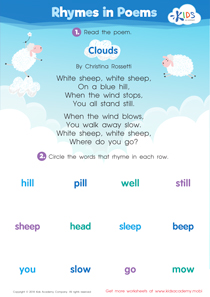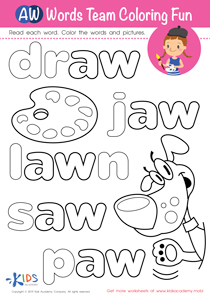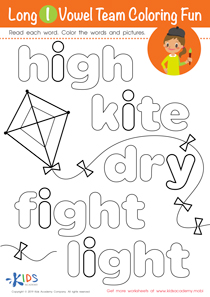Vocabulary enhancement Normal Grade 2 Vowels Worksheets
10 filtered results
-
From - To
Enhance your second grader's vocabulary with our engaging Vowels Worksheets designed for Normal Grade 2! Crafting a strong foundation in vocabulary is crucial for early learners, and these worksheets focus on vowel sounds to enrich reading and language skills. Each activity promotes phonemic awareness through fun exercises that cement understanding of vowel usage in words. Our interactive design captivates students' attention, encouraging them to explore and expand their word banks. Perfect for classroom settings or homeschooling, these resources support teachers and parents in fostering language development. Boost your child's confidence and communication skills with our carefully curated vocabulary enhancement worksheets today!
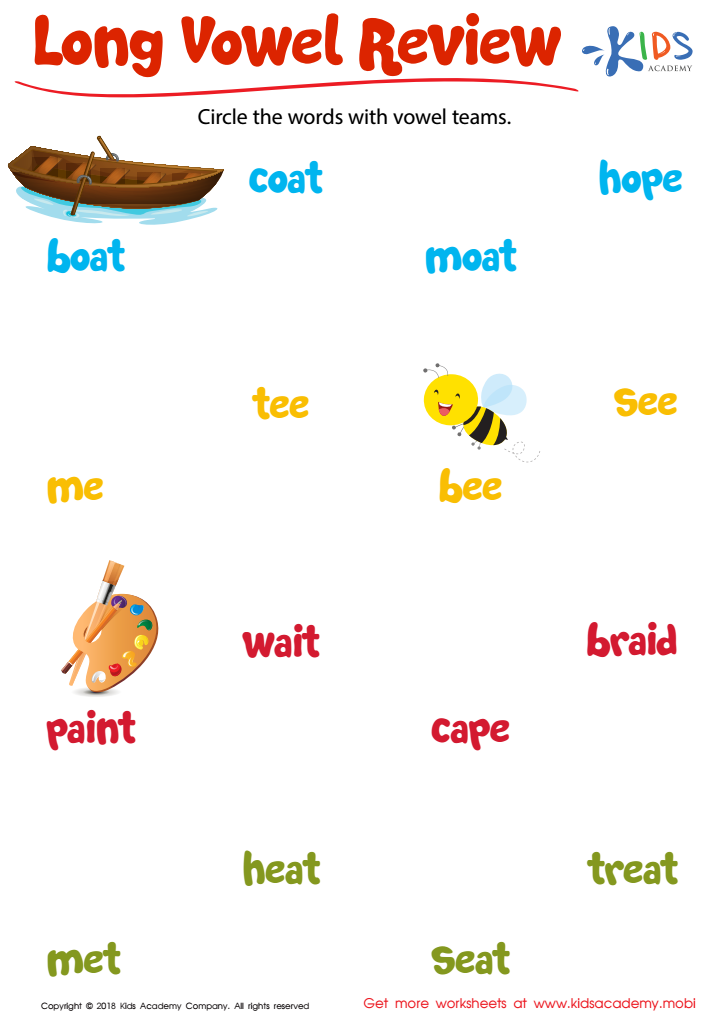

Long Vowel Review Worksheet
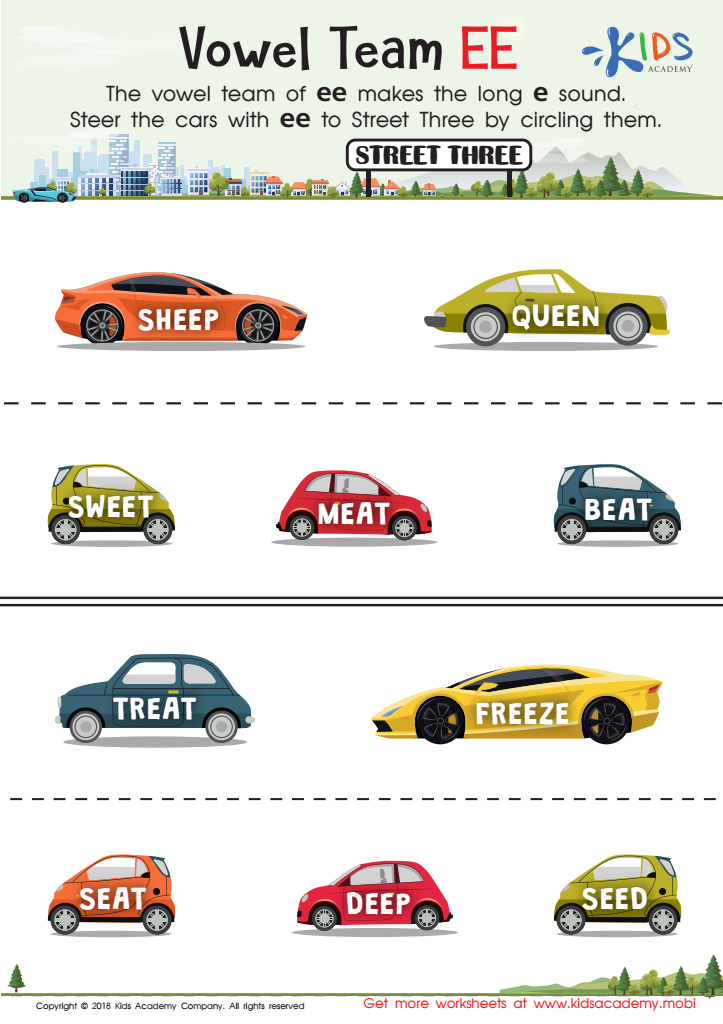

Vowel team ee Worksheet
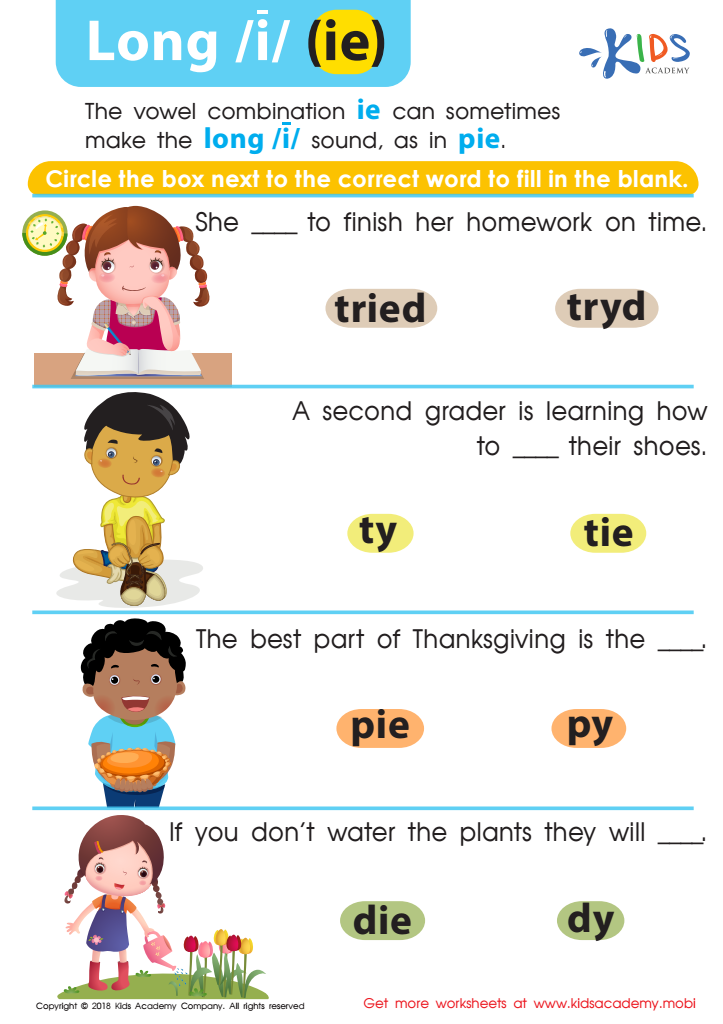

Reading: Long I and IE Worksheet
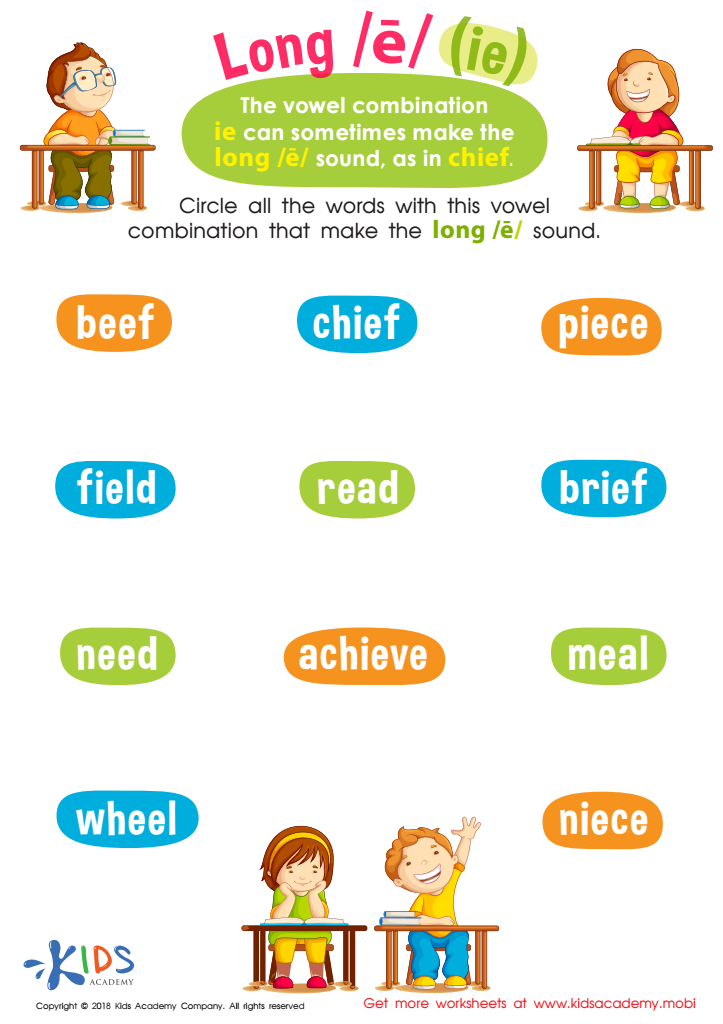

Reading: Long E and IE Worksheet
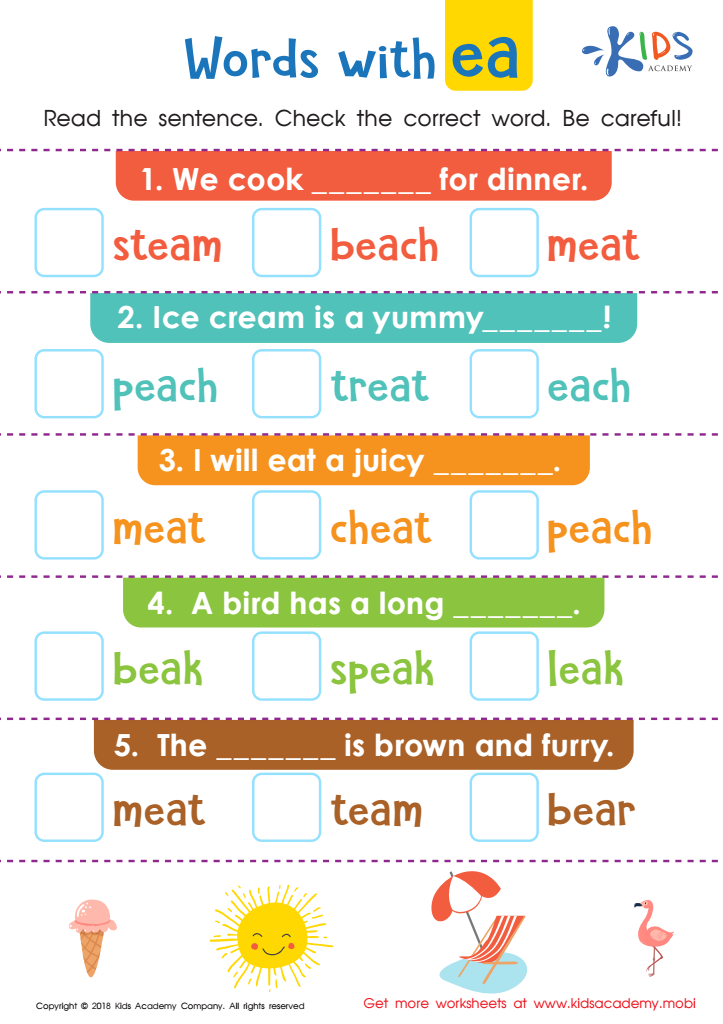

Words with ea Worksheet
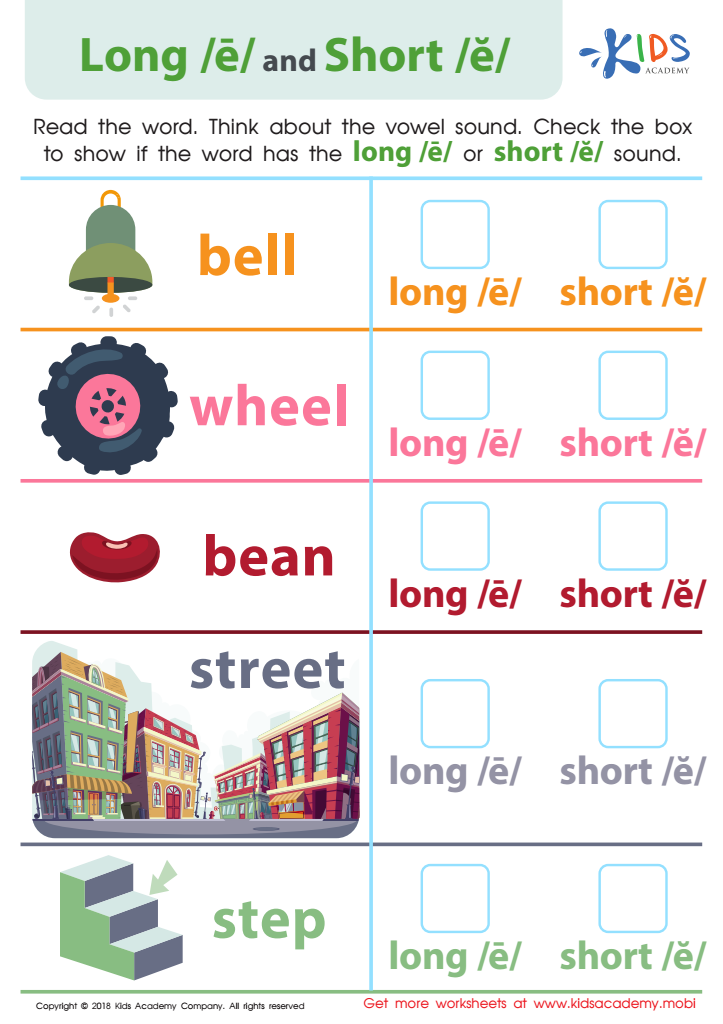

Reading: Long E and Short E Worksheet
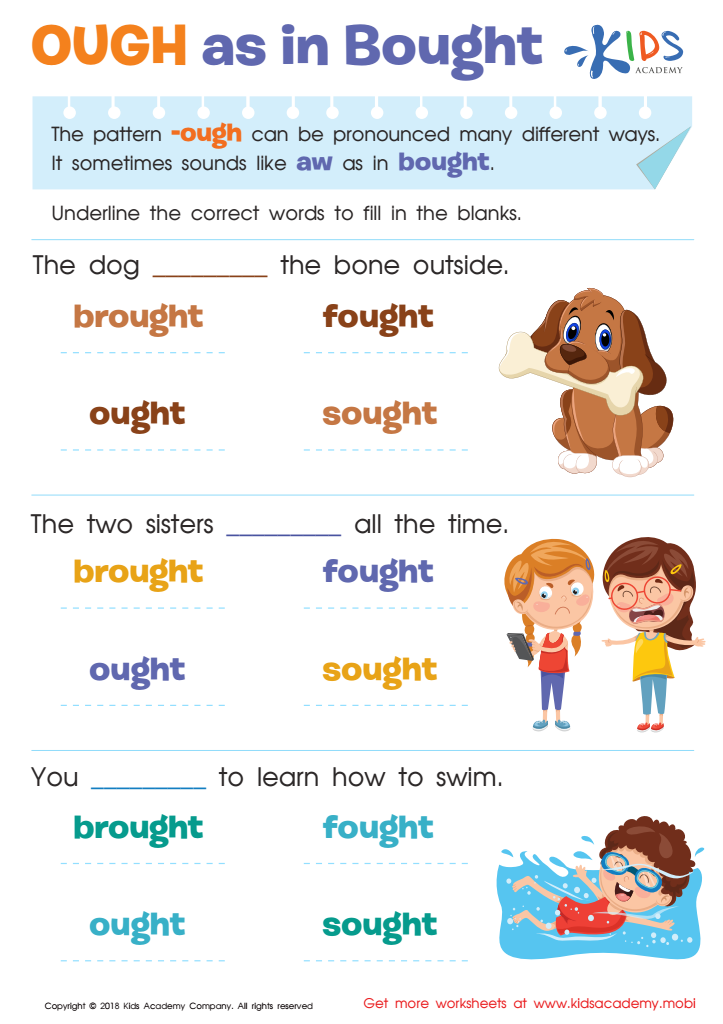

OUGH as in Bought Worksheet
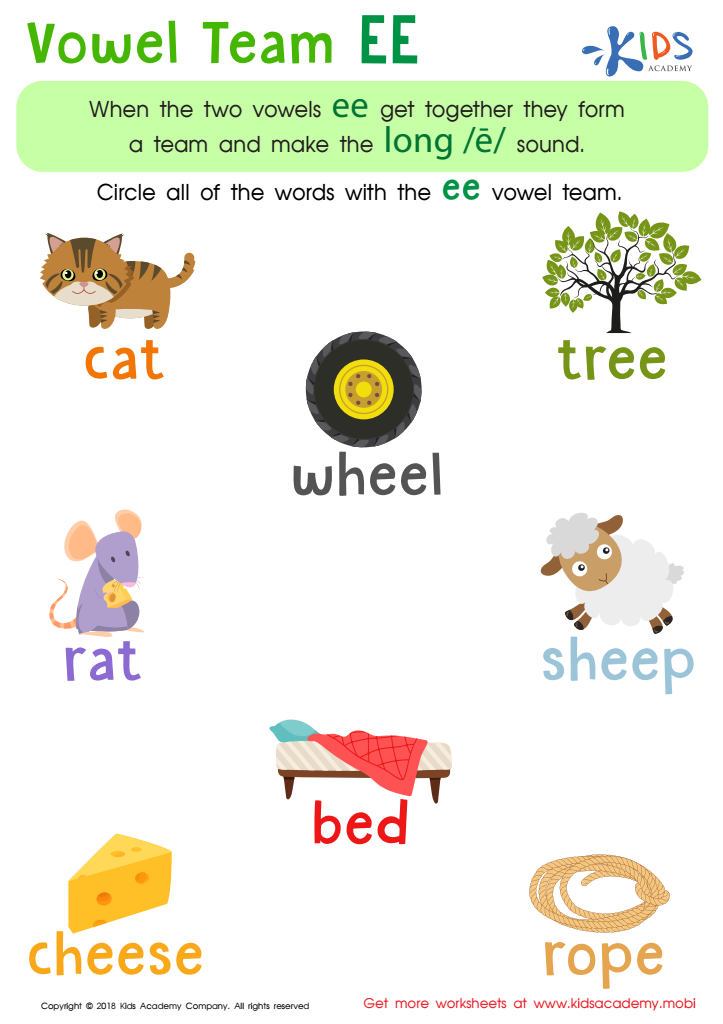

Reading: Vowel Team EE Worksheet
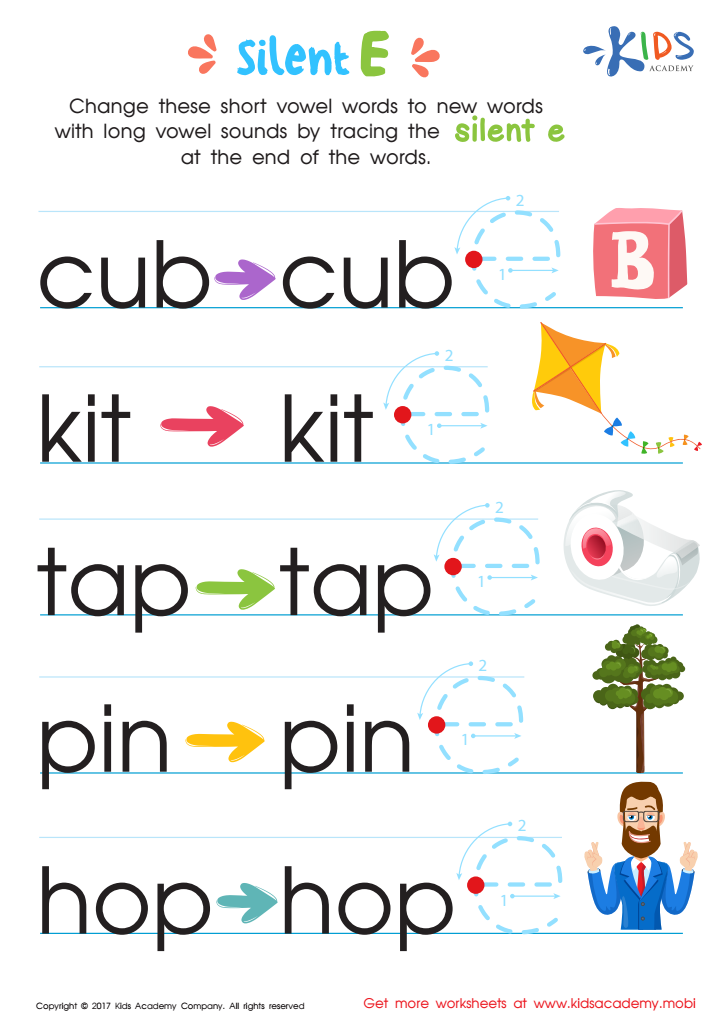

Silent E Words Worksheet
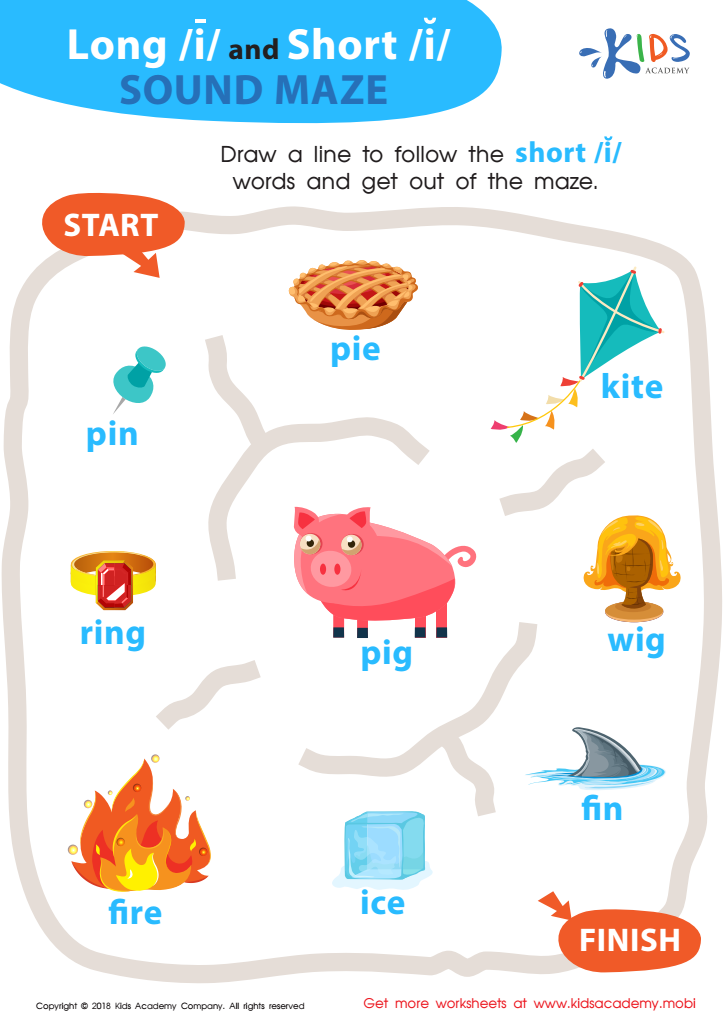

Reading: Long I and Short I Sound Maze Worksheet
Vocabulary enhancement is crucial for Grade 2 students, particularly regarding vowel sounds, as this foundational knowledge directly impacts reading comprehension and overall language development. At this age, children are transitioning from learning to read to reading to learn. A solid grasp of vocabulary, especially words with varying vowel sounds, enables them to decode unfamiliar words and enhances their fluency.
Parents and teachers should care about this enhancement because a rich vocabulary fosters communication skills, critical thinking, and academic success. By introducing children to diverse language experiences—such as reading aloud, engaging in conversations, and playing word games—they develop not only their vocabulary but also their confidence in using language effectively. This age group is particularly receptive to sounds and word structures, making it an ideal time to address vowel recognition and usage.
Furthermore, vocabulary acquisition at an early stage sets the groundwork for future learning. The more words children know, the better equipped they are to understand and engage with complex ideas in the classroom setting later on. Investing time in enhancing vocabulary, especially vowel pronunciation, will cultivate a lifelong love of language and learning, significantly benefitting students as they progress in their education.
 Assign to My Students
Assign to My Students




